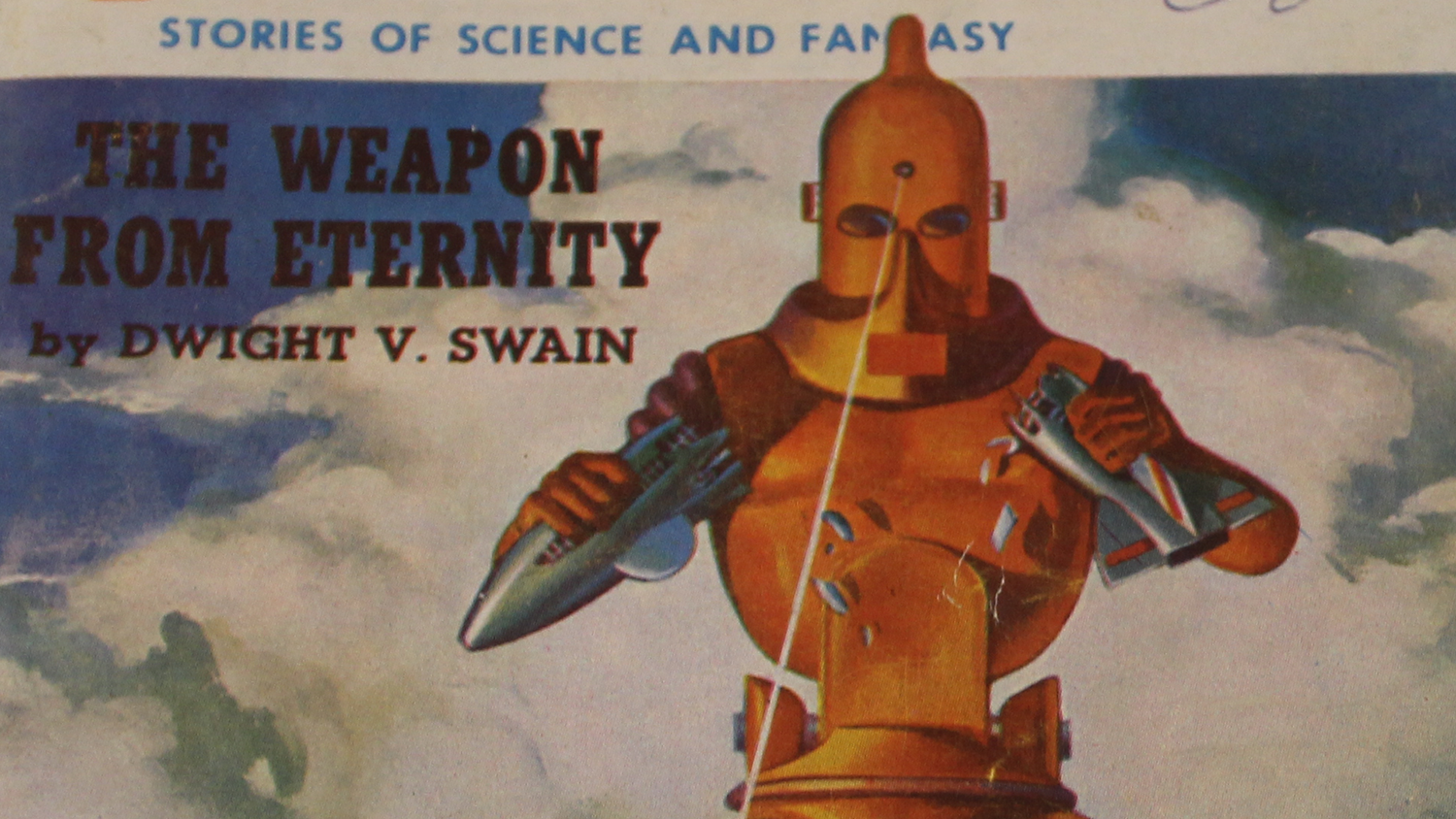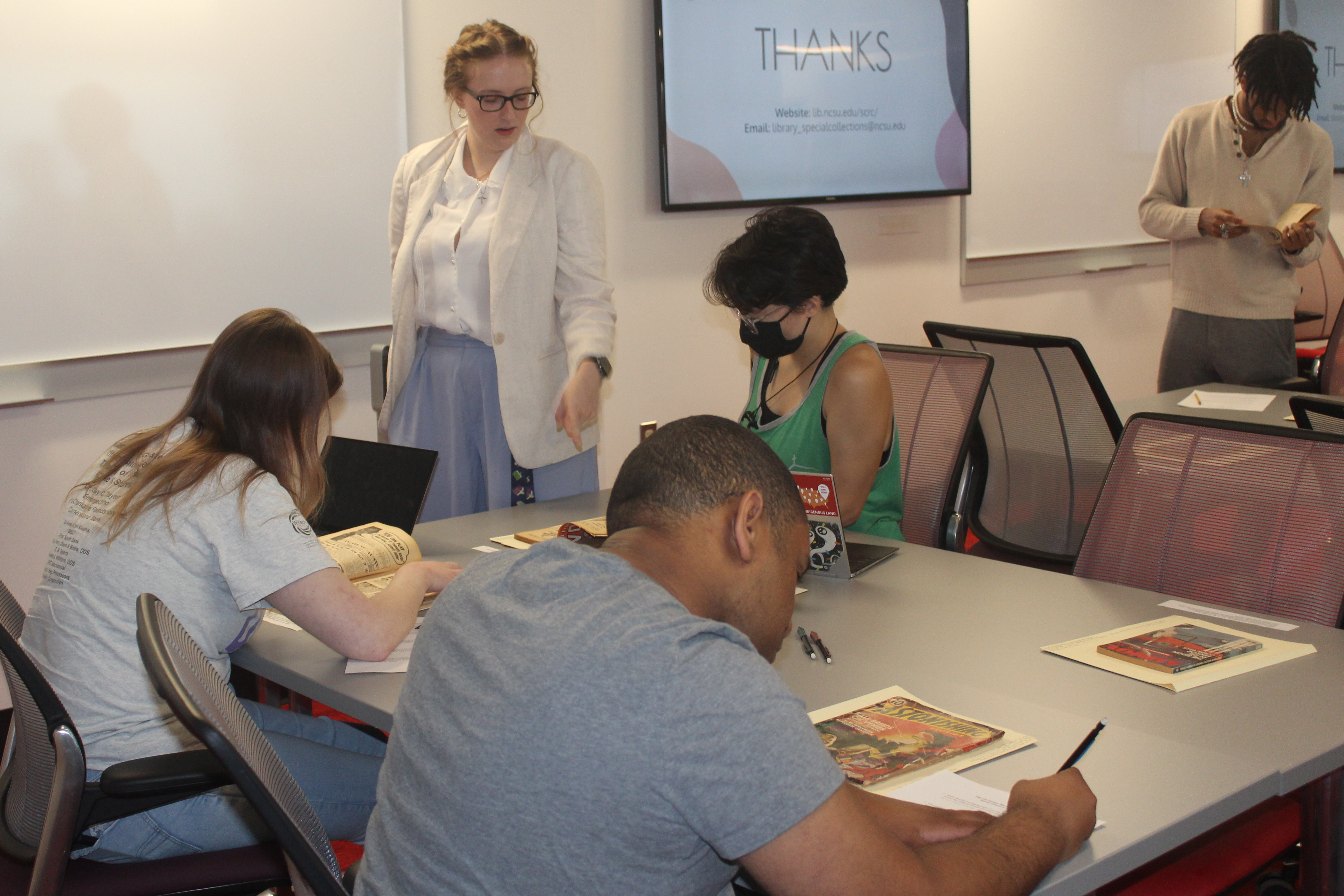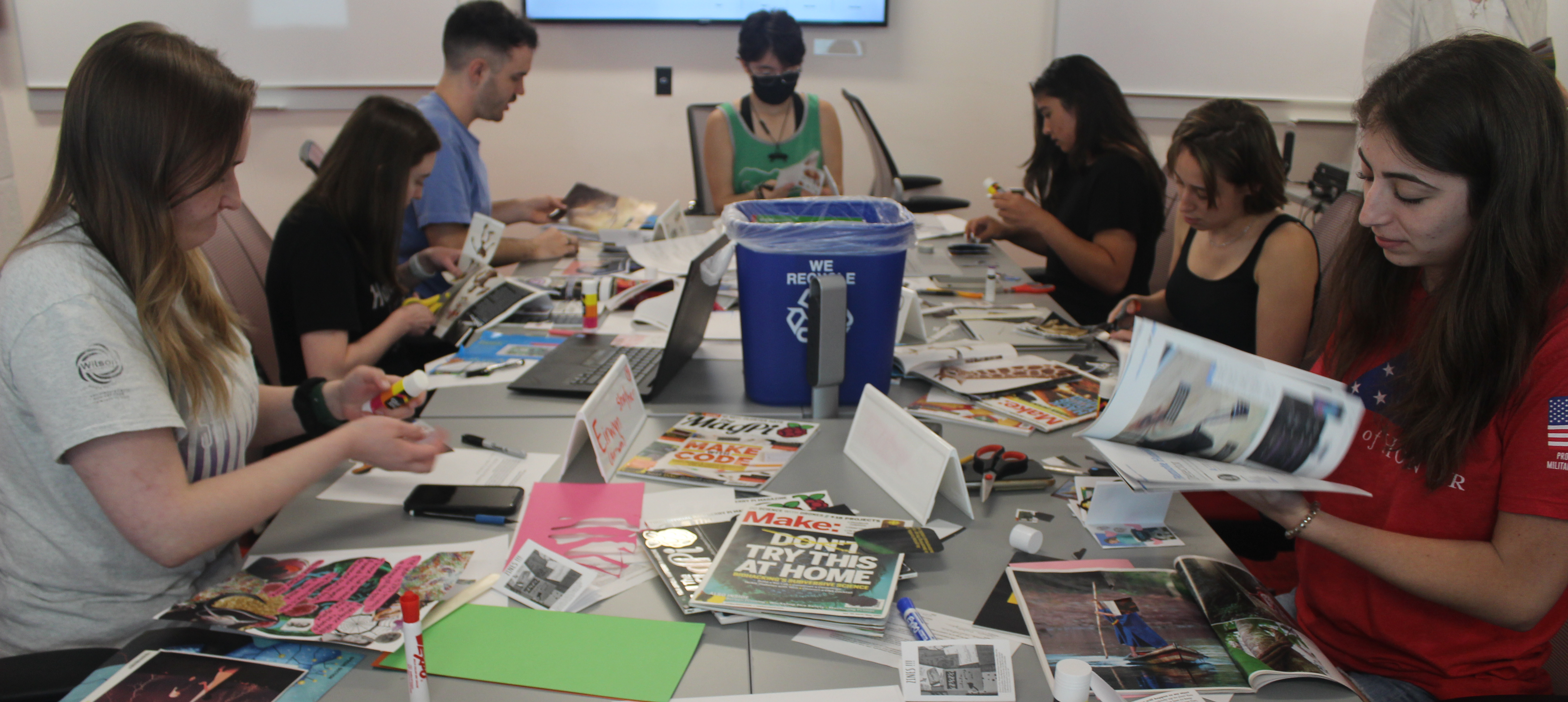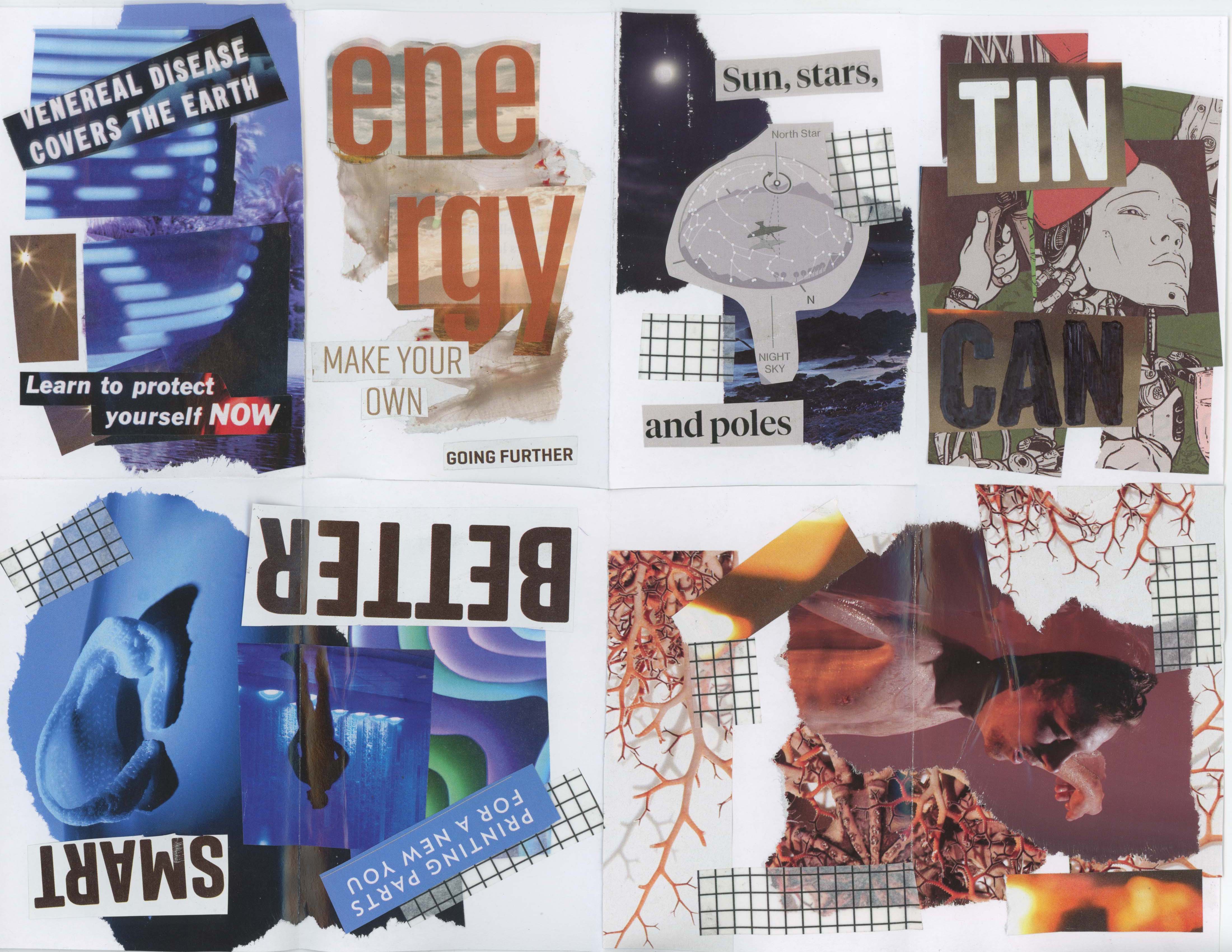
Cover of "Imagination: Stories of Science and Fantasy" science fiction magazine from September 1952

Cover of "Imagination: Stories of Science and Fantasy" science fiction magazine from September 1952
This blog post was co-authored by Phillip MacDonald and Taylor Wolford.
Calling all science fiction enthusiasts and library instructors! In the summer 2023 semester, SCRC developed course instruction for an English class, “Robots, Machine, and In-Betweens,” taught by Dr. Paul Fyfe. A key component of course development was planning an experiential learning session where students could “make” and explore based on course themes and archival materials.
After consulting with Dr. Fyfe, SCRC instruction staff selected several science fiction pulp magazines from the Scott Green Collection of Speculative Fiction and John Kessel Collection of Science Fiction Magazines. The selected magazines contained stories relating to course topics focusing on the role of emerging technologies in society. The students were given the opportunity to look through these texts and choose one short story to examine for the remainder of the class.

After selecting or "adopting" a text, students skimmed through the readings and responded to a series of questions SCRC staff prepared in collaboration with the professor. SCRC staff had a great time exploring emerging technologies for this course, as we used ChatGPT to develop questions for students to respond to during the session. One question posed to the students, for example, was, “What kind of world does the author envision in the story?”

For the second portion of the class, students were asked to create their own zine based on course themes and selected reading for the session. Since zines were some of the earliest forms of science fiction magazines, we selected this activity to teach students about the history of zine-making and science fiction. The zine-making workshop also required minimal prep and supplies, which made it possible to host within a shorter timeframe. The following prompt guided their zine creation:
“Science Fiction and the Future:” What did the past think today was going to be like? Create a mini zine that illustrates predictions of the future from the 20th-century perspective based on SCRC texts and course readings. You can draw images and write short descriptions in the zine, including any potential benefits and drawbacks of these advancements in science and technology. You can also include a brief discussion of any ethical concerns in the 20th century regarding emerging technologies.
Since this instruction session dealt with machine learning and artificial intelligence, we collaborated with ChatGPT to help develop the prompt and to structure the workshop more generally, including our presentation on the connection between zines and the history of science fiction. We don't know if we will use this software again to support our engagement, but given the session topic, we felt it was more than appropriate to use ChatGPT in this instance.
SCRC staff hosted a zine-making workshop for this course in consultation with Universal Learning for Design (UDL) guidelines, which support equitable learning opportunities and outcomes. UDL guidelines recommend that learning opportunities in the classroom provide multiple methods of engagement, as well as multiple means of action and expression for students. By encouraging students to create and make, and to engage with the topics through their own form of expression, library instructors observed that the students were much more engaged in the session and participated in alignment with their own learning needs and preferences.

Another major consideration for this session was promoting student projects and community engagement through creative works. By the end of the session, library instructors provided students with the opportunity to digitize their zines. We set up a mobile scanning station for SCRC staff to scan the students’ zines, after which the digital files were individually sent to each student. In the spirit of zine-making, we wanted the students to have the ability to replicate and distribute their creations to the local community if they chose to do so. Nearly all students requested a scan of their zine and received the digital file within a week of the course session.
As this was the first zine workshop planned as part of an SCRC teaching collaboration, we were delighted to see the enthusiastic level of engagement of the students while participating in the activities. This interest provided concrete validation that zine-making can be an effective avenue to immerse students and our broader community in our special collections. Moreover, the workshop highlighted possible opportunities for collaborations with other classes and student organizations, making this a community relationship-building activity, which could lead to exciting future projects or joint events. Regarding the supplies we provide, we thought that more is more. The plethora of materials for our attendees to use allowed their imagination and creativity to manifest into unique and stunning zines!

The biggest takeaway, of course, was to have fun! Having multiple staff members from the department allows for directly engaging with multiple students at a time. Additionally, having staff post up at the tables allows them to participate in the activity itself, which serves as just another example for the students to observe. As an outreach team, we are excited to brainstorm and plan on how to bring our zine-making workshop to other courses here at NC State University.
If you have any questions or are interested in viewing Special Collections materials, please contact us at library_specialcollections@ncsu.edu or submit a request online. The Special Collections Research Center is open by appointment only. Appointments are available Monday–Friday, 9am–6pm and Saturday, 1pm–5pm. Requests for a Saturday appointment must be received no later than Tuesday of the same week.